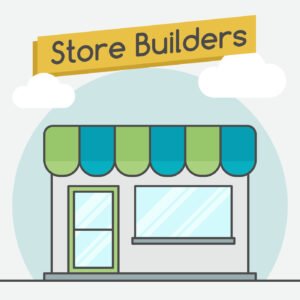Creating a great-looking digital storefront is easier than ever before, but the work of launching a thriving eCommerce business doesn’t stop there. You have to fill that store with products that your audience has shown a demonstrated need or interest for.
So, how can you accomplish that for yourself or your clients?
Do you get into the manufacturing business and produce your own goods? Do you hit the market and find products that you can sell as an affiliate? Do you find generic products that you can re-brand or white label?
Each options comes with its own set of merits and flaws, so we produced this episode to help you determine which eCommerce sourcing model is right for your situation. We talk about the most common strategies for creating or sourcing products, equip you with information to help your clients make an educated decision, and share a few resources for getting the process started quickly and painlessly.
Which eCommerce sourcing model is right for you or your clients? We’ll help you decide in this episode of the Store Builders podcast. Click to Tweet
As a Store Builder, you’re going to be dealing with two types of customers – the Curator and the Creator.
The Curator has an existing audience that they want to leverage to sell pre-existing products that are produced by other people. Think of a men’s fashion blogger who wants to promote his favorite shoes, watches, ties, etc.
The Creator is someone who has a strong brand and/or messaging that they want to leverage to create custom products that will appeal to their audience. Think of a private membership community that wants to put their logo/slogan on t-shirts, stickers, or mugs.
We talk about how to identify which situation your client is in and what implications that might have for the sourcing model you recommend.
When people talk about sourcing items for an eCommerce store, the conversation usually turns to dropshipping pretty quickly. Chris helps me understand the truth behind the dropshipping model and why it’s probably not in the best interests of you or your clients.
You’ll want to listen closely to this part of our discussion, because it provides plenty of material for your next strategy call or store builder meet-up.
Most importantly, all of the sourcing recommendations we make are easy to integrate with popular platforms like Shopify or WooCommerce. You can plug into existing directories of physical goods and, if necessary, customize them to meet the needs of your clients.
Now that you don’t have the overhead of solving annoying technical challenges, you can have more strategic conversations with your clients and start delivering value in other areas of their business. Establish yourself as a trusted advisor rather than a technician and your balance sheet will thank you for it.

Description When most people set up an eCommerce store, they’re thinking about capturing individual online shoppers. These online shoppers often search for good prices...

Description What are some of the recurring problems you encounter while running your eCommerce store? Do you have consistent employee turnover? Are there consistent...

Description If you think your job as a Store Builder is done on launch day, think again. eCommerce consultants and agencies who hand over...